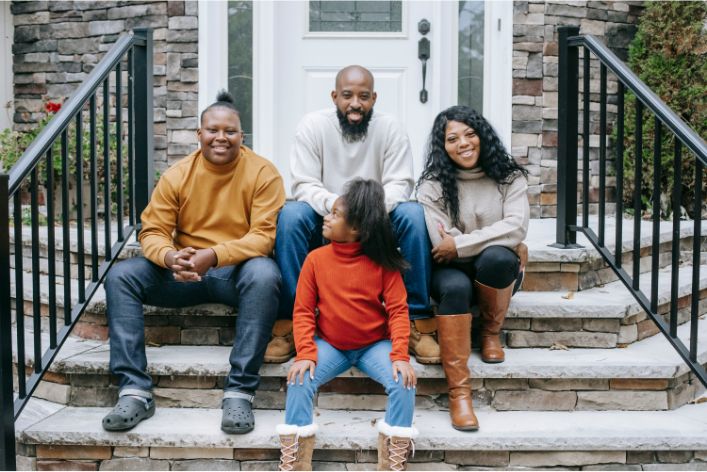Introduction
In Nigeria, the landscape of affordable housing is challenging due to high property prices and low-income levels. This has made it difficult for most Nigerians to own a decent home.
Affordable housing is essential in Nigeria’s real estate sector as it caters to the housing needs of low and middle-income earners.
The purpose of this blog post is to examine the affordable housing situation in Nigeria’s real estate sector.
The post aims to highlight the challenges faced by Nigerians in accessing affordable housing, why affordable housing is crucial, and possible solutions to make affordable housing easily accessible for Nigerians.
Read: Career Opportunities in Nigeria’s Construction Industry
Affordable Housing in Nigeria: Overview
Affordable housing refers to housing units that are affordable to low-income earners or people with limited financial resources. This is essential because it helps to reduce the housing deficit, slum conditions, and homelessness, which are prevalent in Nigeria.
The history of affordable housing in Nigeria dates back to the Colonial era. During this time, the government was responsible for providing housing for government employees.
However, after independence, the private sector became more involved in the provision of housing. In the 1970s and 1980s, affordable housing was a priority for the government, which established government-owned housing estates. These estates were designed to cater to the lower-income earners.
The government of Nigeria has implemented various initiatives and policies aimed at providing affordable housing for its citizens.
The most significant of these initiatives is the National Housing Fund (NHF) established in 1992. The NHF is a scheme that provides long-term mortgage loans to Nigerians who are contributors to the fund.
Other government policies and initiatives include the Public Private Partnership (PPP) and the Mortgage Refinancing Company (MRC).
The NHF and PPP
The NHF is a scheme that enables contributors to the fund access affordable mortgage loans. It is funded by a 2.5% deduction of the basic salary of Nigerian workers who earn a minimum of N3,000 (about $8) per month.
The NHF is available to all Nigerians within the age bracket of 21-65 years and is managed by the Federal Mortgage Bank of Nigeria (FMBN).
The PPP is a partnership between the public and private sectors designed to provide affordable housing for Nigerians.
This partnership involves the government providing land, while private developers build and finance the construction of affordable housing units. The government contributes to the funding of the housing units, and in some cases, provides incentives to private developers.
Mortgage Refinancing Company (MRC)
The Mortgage Refinancing Company (MRC) was established in 2013 to provide refinancing services to mortgage banks.
The MRC was created to address the issue of high-interest rates on mortgage loans, which made it difficult for many Nigerians to access affordable housing. The MRC provides long-term funds at reasonable interest rates to mortgage banks, which can, in turn, offer more affordable mortgage loans to Nigerians.
The provision of affordable housing is a critical issue in Nigeria. The government has implemented various initiatives and policies aimed at addressing the housing deficit and providing affordable housing for low-income earners.
The NHF, the PPP, and the MRC are some of the initiatives designed to provide housing for Nigerians. However, there is still a long way to go, and more needs to be done to facilitate the provision of affordable housing for Nigerians.
Read: Influence of Nollywood on Nigerian Digital Marketing
Challenges of Affordable Housing in Nigeria
Lack of access to finance and credit facilities
One of the major challenges of affordable housing in Nigeria is the lack of access to finance and credit facilities.
Many Nigerians, particularly those from low-income households, find it difficult to secure mortgage loans from financial institutions due to stringent requirements and high interest rates.
High cost of land and building materials
The high cost of land and building materials also poses a significant challenge to affordable housing in Nigeria. The cost of acquiring land and building materials has continued to rise, making it difficult for developers to provide affordable housing units to low and middle-income earners.
Poor urban planning and infrastructure
Poor urban planning and infrastructure is another significant challenge to affordable housing in Nigeria. Many Nigerian cities lack adequate planning, resulting in the proliferation of slums and informal settlements.
This lack of proper planning also makes it challenging to provide necessary infrastructure such as roads, drainage systems, and water supply systems.
Unregulated real estate practices
Unregulated real estate practices also pose a significant challenge to affordable housing in Nigeria. There is no specific regulatory framework governing real estate development in Nigeria, leading to issues such as fraudulent practices, inadequate building standards, and unscrupulous practices by developers.
Cultural practices that limit homeownership
Generally, cultural practices that limit homeownership in Nigeria present another significant challenge to affordable housing. In many Nigerian households, homeownership is seen as a long-term investment that is only achievable by wealthy individuals or families.
This mindset makes it difficult for the average Nigerian to acquire their own homes, thus limiting the demand for affordable housing.
In review, while affordable housing remains a crucial need in Nigeria’s real estate sector, several challenges hinder its realization.
These challenges range from lack of access to finance and unregulated real estate practices to cultural practices that limit homeownership.
Addressing these issues requires concerted efforts from both the public and private sectors, including the formulation of policies and regulatory frameworks that promote affordable housing and incentivize investment in the sector.
Read: Challenges Facing Real Estate Developers in Nigeria
Gain More Insights: Nigeria’s Land Surveying: Standards, Ethics, and Practice
You Might Also Like: Factors Influencing Property Prices in Nigeria
Landscape of Affordable Housing in Nigeria
Affordable housing has become a critical issue in Nigeria’s real estate sector, with the increasing population and lack of adequate housing. Finding affordable housing that meets basic needs has become a significant challenge for many Nigerians.
This section will explore current trends in the affordable housing market in Nigeria, popular affordable housing schemes, and location and demographic considerations for affordable housing.
Current Trends in the Affordable Housing Market in Nigeria
- The demand for affordable housing has been on the rise due to rapid urbanization and population growth.
- The supply of affordable housing has not been able to meet the demand, leading to a housing deficit in Nigeria.
- The cost of building materials and high-interest rates on mortgage loans have made it difficult for developers to construct affordable homes.
- However, some developers have started taking advantage of government initiatives to build affordable housing units through public-private partnerships, and this has increased the supply of affordable homes in Nigeria.
- The use of technology, such as prefabrication, has emerged as an innovative way to build affordable housing in Nigeria.
Popular Affordable Housing Schemes in Nigeria
- The Federal Mortgage Bank of Nigeria (FMBN) National Housing Fund (NHF) scheme is a popular affordable housing scheme that has been in existence since 1992.
- The Lagos State Home Ownership Mortgage Scheme (HOMS) is another popular affordable housing scheme that provides low-interest mortgage loans to eligible applicants.
- The Delta State Government has also implemented an affordable housing scheme called the Delta State Housing Development Corporation (DSHDC).
- The Family Homes Fund (FHF) is an affordable housing initiative introduced by the federal government to increase the supply of affordable homes in Nigeria.
- In addition, some private developers have initiated affordable housing projects that cater to low-income earners in Nigeria.
Location and Demographic Considerations for Affordable Housing
- Location is a vital factor when considering affordable housing in Nigeria. Developing affordable housing in urban centers is more expensive than developing in rural areas.
- Demographic considerations such as income levels, age, family size, and lifestyle preferences are also essential when developing affordable housing in Nigeria.
- Most low-income earners prefer affordable housing that is close to their workplace, shops, and public amenities like schools and hospitals.
- Developers can also consider building multi-story buildings to reduce land use and increase the number of affordable housing units per land area.
In general, the demand for affordable housing in Nigeria’s real estate sector continues to increase.
The current trends in the affordable housing market in Nigeria show that developers are finding innovative ways to build affordable housing units to meet the increasing demand.
There are also several popular affordable housing schemes in Nigeria that cater to low-income earners.
However, location and demographic considerations are crucial when developing affordable housing in Nigeria, and developers need to take these factors into account to meet the housing needs of low-income earners in Nigeria.
Read: Understanding Real Estate Investment in Nigeria: A Guide

Impact of the COVID-19 Pandemic on Affordable Housing in Nigeria
Brief Overview of the Pandemic Situation in Nigeria
COVID-19, a novel respiratory disease, first showed up in Nigeria on February 27, 2020, when an Italian citizen who traveled to Lagos was confirmed positive for the virus.
From then on, the country has battled with containing the pandemic, announcing lockdown measures in many states in March 2020. As of August 2021, Nigeria has reported over 176,000 confirmed cases and 2,200 deaths.
Effects of the Pandemic on the Real Estate Sector
The pandemic had a considerable economic effect on Nigeria’s real estate sector.
There was an increase in the cost of building materials due to supply chain disruptions, and construction projects were halted or delayed due to workforce restrictions, scarcity of financing, or slowed government approvals.
Furthermore, the pandemic prompted many real estate investors and homebuyers to delay or cancel purchases, resulting in a reduction in sales prices, particularly in luxury and high-end sections.
Read: How to Become a Licensed Real Estate Agent in Nigeria
Government Response to the Pandemic and Its Impact on Affordable Housing
The Nigerian government’s pandemic response focused on economic stimulus packages, but affordable housing received limited attention.
The Family Homes Fund initiative aimed to develop affordable housing, but progress was affected by the pandemic. Leveraging technology to address social distancing and minimize the pandemic’s impact on the real estate sector is crucial for promoting affordable housing.
List of Impacts of the COVID-19 Pandemic on Affordable Housing in Nigeria
- Increase in construction costs due to supply chain disruptions.
- Delayed or halted construction projects due to workforce restrictions, financing scarcity, and slowed government approvals.
- Reduction in the cost of sales due to delayed or canceled purchases by real estate investors and homebuyers.
- Limited government support for affordable housing in economic stimulus packages.
- The delay in executing affordable housing projects due to the pandemic has resulted in increased costs with deteriorated purchasing power
- Increased reliance on technology to promote affordable housing in the country.
COVID-19 impacted Nigeria’s real estate, including affordable housing. Government efforts are commendable, but more is needed to mitigate the pandemic’s effects. Technology-driven solutions and regular monitoring can ensure successful housing delivery.
Read: Becoming a Digital Marketing Consultant in Nigeria
Conclusion
Nigeria’s affordable housing faces obstacles such as limited financing access and high construction costs. However, initiatives like mortgage finance and the National Housing Fund are addressing these.
The private sector can bridge the housing gap by investing in affordable projects. The government needs to provide tax incentives and cut land acquisition costs, fostering a thriving private sector.
All stakeholders must collaborate and contribute to solving Nigeria’s housing deficit. This will not only improve living conditions but also stimulate economic growth.
New building technologies and materials can lower construction costs, aiding the creation of more affordable homes. Policies need to increase financial access for first-time and low-income homebuyers.
Nigeria can meet its growing housing needs with the combined efforts of all stakeholders. The government needs to devise policies promoting an affordable housing-friendly environment.
We urge all stakeholders to unite, face Nigeria’s affordable housing challenges and brighten the future of Nigeria’s housing sector.




